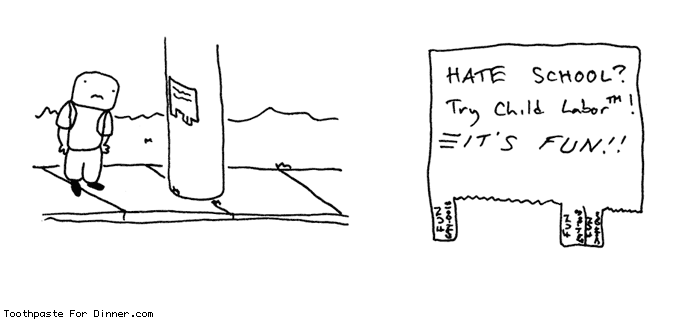Dear Lara (2010 edition),
It's been a long three years. More has
happened and changed than you could have possibly predicted and more
change is on the way. But, guess what? Life is good. No, life is
great.
When you began this journey to become a
teacher, you knew it would be a challenge. In fact, the program
itself seemed like a nearly insurmountable challenge. I'll be honest.
It didn't get any easier. Those concerns about everything seeming
like an unnecessary roadblock? They were valid. It definitely took
much longer to get this second degree than it should have. The
coursework itself often seemed to be built simply as hurdles, not as
something meaningful and useful for a career in teaching. At times,
it seemed that all this schooling would prepare you for was the
paperwork and hassle part of teaching. We certainly got practice in
working within the system. I still don't see the value in that.
But there were definitely bright spots.
The educational psychology class and the child development class were
both incredibly informative in surprising ways. Not only was the
class content useful for actual classroom practice (and for the PLT),
the delivery method and the classroom community were wonderful
examples to follow in your classroom in the future. The final year of
your schooling has been very useful, as well. Working within your
content area with other English teachers-in-training has been fun! I
believe we've built a support system we can continue to call upon
throughout our first year teaching. We must keep in touch with at
least a few of these classmates, colleagues, and friends. One very
useful thing about these last few semesters has been the chance to
teach each other lessons and to share our resources. The writing
lessons shared in the class on theory of composition were often new,
interesting, and engaging. The grammar lessons in our
pre-student-teaching seminar were better than any grammar teaching
I've seen in schools. I'm excited to put them to use and get my
students engaged with grammar and writing.
I think the program would be more
effective if it would get us into these real, practical,
content-specific areas earlier. We could skip the entire class on
literacy strategies in which all the content areas are mixed. We
would all get more out of a content-specific class on literacy
strategies. In fact, we had one of those, too. Why the repetition? It
makes me think the university is just trying to stretch the program
out and get more tuition money. We could use an entire methods class
on grammar and the teaching of it. The program should do that
instead.
Aside from the program itself, Lara,
just keep believing in yourself. Keep doing your best. The challenges
in your personal life these three years are going to be possibly the
hardest thing you've ever gone through, but you can do it. You will
do it. Take care of yourself while you're taking care of your kids
and your responsibilities. Carve out an area wherever you are to
focus and work. I wish I had always done that. You know we need a
space that is orderly and clean. Make it for yourself even when it
seems like everything else is in a shambles. You are important. Treat
yourself like it.
You know what's the most amazing? It
will all pay off in the end. Life is better than you can know it will
be. You will learn much more than you are taught. Take it in and
savor it. It just keeps getting better.
Much love,
Lara (2013 edition)

